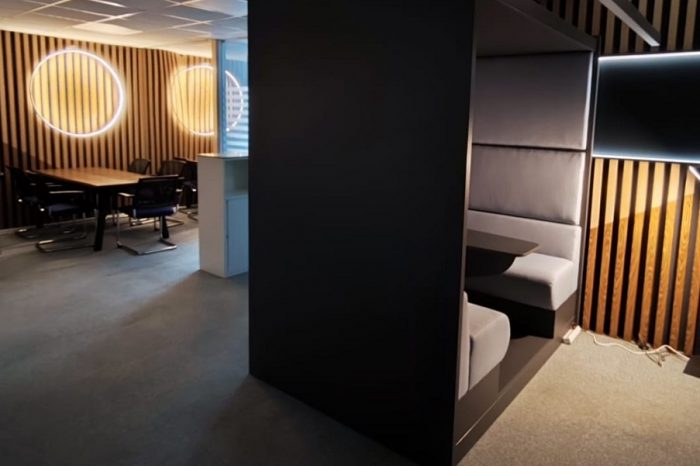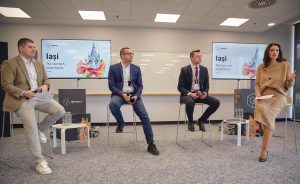NextUp: Romanian SMEs no longer hope for non-reimbursable funds for digitization and invest from their own sources in software solutions to avoid losses

Entrepreneurs’ interest in software solutions, which automates part of their daily work, has grown rapidly in recent months, in the context of a declining confidence in the state institutions
The demand for software solutions that automate recurring activities registered an accelerated growth of 20% between January and June 2022, compared to the same period from the last two years, due to the fact that Romanian entrepreneurs, many affected by pandemics, no longer hope for the launch of the digitized financing program for digitization for SMEs as part of the promised National Recovery and Resilience Plan (PNNR) from 2020, shows an analysis done by NextUp, developer and provider of software solutions for businesses.
PNRR, with a total value approved by the European Commission of 29.2 billion euros, includes in Romania’s development strategy components Digital Transformation, which allocates the amount of 315 million euros for the digitization of SMEs, according to information published on the website of the Ministry of European Investments and Projects. Originally announced in July 2020, as support during the pandemic, the program has been postponed to early 2021 and later to the end of 2021, without being launched yet.
“Many businesses are still affected by the effects of the pandemic and need financial support, but entrepreneurs have given up waiting for the launch of the digital funding program. Two years of promises and especially of postponed or canceled financing programs have passed, and businesses cannot stand still because they have a responsibility to customers, employees, suppliers and the market. When you have a business, you have to act quickly given the evolution of the market, and the continuous postponement of the granting of European funds generates a decrease in the confidence of entrepreneurs in the state and does not offer perspective in the business environment. This is also the reason why most entrepreneurs interested in public funding have decided not to wait for the launch of the PNRR program and to invest from their own resources in digitizing processes in their companies to avoid losses and be competitive in the market “, explains Roxana Epure, Managing Partner NextUp.
Currently, Romanian entrepreneurs invest between 1,000 and 5,000 euros in ready-to-use software solutions and between 7,000 and 12,000 euros in customized software solutions depending on business needs. Investments are made during 3-12 months, depending on the needs and complexity of the business. They also plan new investments in automating several business processes, which they intend to do with the development of the business.
Instead, by accessing non-reimbursable funds, companies could invest between 30,000 euros and 100,000 euros for the purchase of IT equipment and digitization solutions, as provided in the PNRR.
“Even in the absence of these subsidies, companies prioritize investment in the digitization process, especially in the area of automation of repetitive tasks that help reduce long-term costs. Market trends show that more and more small companies, with a maximum of 20 employees, are equipped with management and accounting software or even ERP systems – completely adapted to their industry, which simplifies work – customized automation solutions and other technologies. Currently, digitalization cannot be avoided if you want your business to survive in the market and to grow continuously, being a must-have in business and, at the same time, a solution for many situations, implicitly for high consumption of resources and avoidance of losses”, declares Roxana Epure, Managing Partner NextUp.
While the launch of the non-reimbursable financing program for the digitalization of SMEs is delayed, the state makes it difficult for companies, employees, and entrepreneurs through cumbersome reporting on everything that happens in a business, through SAF-T and e-Invoice systems.
Thus, in the opinion of the entrepreneur Roxana Epure, the state only simulates the digitization of the relationship with the business environment, practically forcing companies to unforeseen expenses with new digitization solutions necessary to report all business data to ANAF and activities in addition to current ones. In order for businesses not to feel the reporting of SAF-T and the transmission of data from invoices in the e-Invoice system as time-consuming responsibilities, NextUp has created two solutions for automating data extraction and transmission to the state, processes that take between 5 and 20 minutes, depending on the number of invoices and the amount of data available and which helps companies to avoid spending on additional resources.
NextUp, the developer of the first ERP with artificial intelligence, is one of the largest producers of software for entrepreneurs and accountants, created through modern technologies and updated according to legislative-fiscal changes. Addressed to local businesses, NextUp software is mainly used in online retail, traditional retail, production, distribution and services, to automate repetitive time-consuming activities and optimize business processes and forecasts. NextUp has over 7,000 customers, with an average of 5 users per company.












